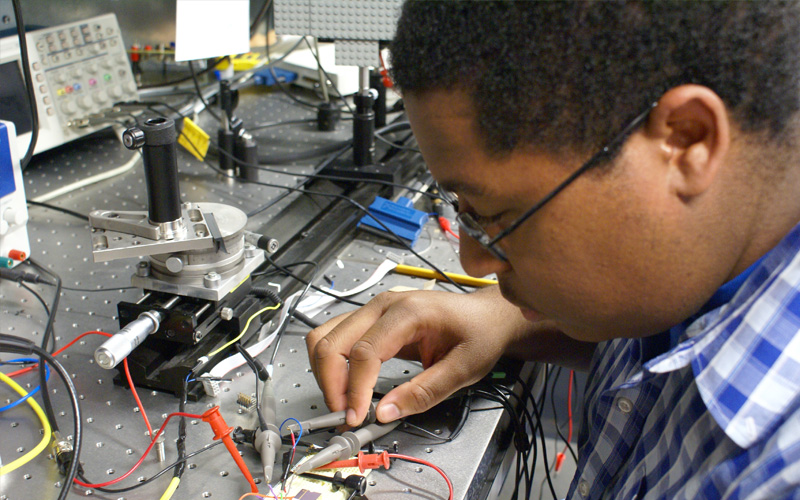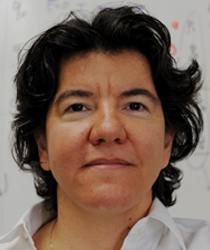Led by 90 full-time and affiliate faculty members and 26 research faculty and postdocs, the research programs within the department cover a wide spectrum of activities in the following areas:
- Communications, Networking, and Information Theory (CNIT)
- Signal Processing and Machine Learning (SPML)
- Control, Robotics, Autonomy, and Learning (CRAL)
- Computer Architecture (CMAR)
- Embedded and Cyber-Physical Systems (ECPS)
- Cybersecurity and Cyberprivacy (CYSP)
- Quantum Technologies (QUTE)
- Applied Physics and Electromagnetics (APHE)
- Optics and Photonics (OPTP)
- Electronic Materials and Devices (ELMD)
- Power Electronics, Solid State Circuits, and Bioelectronics (PECB)
Cross-disciplinary Research
Our close affiliation with a number of research institutes such as the Institute for Systems Research, the Institute for Advanced Computer Studies, the Institute for Research in Electronics and Applied Physics, the Institute for Physical Science and Technology, and the Maryland NanoCenter provides our students and researchers the opportunity for team-oriented, cross-disciplinary research and access to the institutes' state-of-the-art laboratories.
Cutting-Edge Research Opportunities
ECE is a large department that offers a broad range of programs and research opportunities. Its research innovations are aimed at helping government and industry face today's most difficult global challenges. Employers and peer institutions recognize the prestige of Maryland's engineering programs.
Maryland's proximity to Washington, D.C., offers unique research opportunities with national and government laboratories such as NASA's Goddard Space Flight Center, the National Institutes of Health, the National Institute of Standards and Technology, and the Army and Navy Research Labs. No other top Engineering program in the U.S. can provide such close proximity and access to national laboratories, the federal government, and the Department of Defense.

